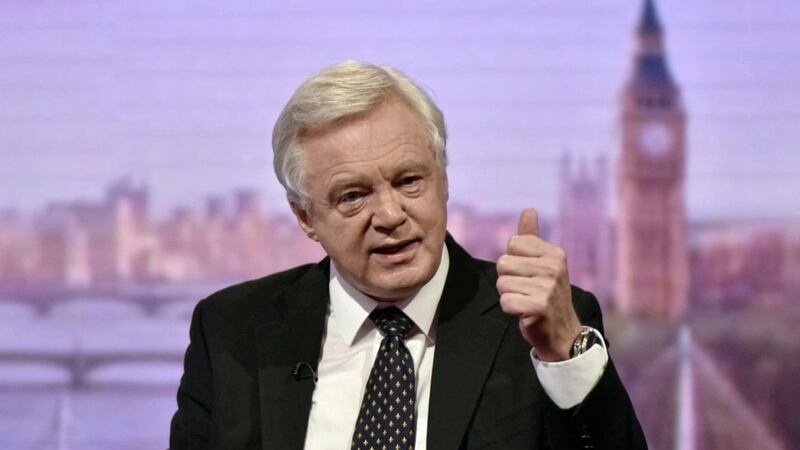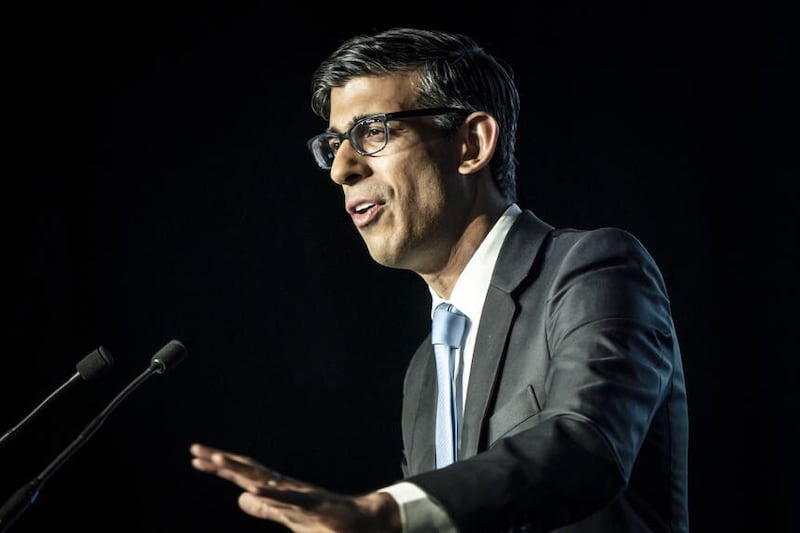David Davis has accused Brussels and its chief Brexit negotiator Michel Barnier of having a "silly" approach to the talks on the UK's withdrawal from the European Union.
The Brexit secretary said the EU was trying to put pressure on the UK over the demands for a so-called divorce fee - the subject of a bitter row during the latest round of talks - and playing down the progress that had been made.
Meanwhile Mr Barnier claimed he needed to educate the UK about the price it would pay for leaving the bloc.
The latest round of talks in Brussels ended with Mr Barnier claiming there had been no "decisive" progress on key issues and suggesting there was a lack of trust as a result of the UK's refusal to accept financial obligations.
But Mr Davis told BBC's Andrew Marr Show: "They have set this up to try to create pressure on us on money, that's what it's about, they are trying to play time against money."
Comparing Brussels' demands to a hotel bill presented to a guest on checking out, Mr Davis said: "We are going through it line by line and they are finding it difficult because we have got good lawyers."
He said Mr Barnier "wants to put pressure on us, which is why the stance this week in the press conference - bluntly, I think it looked a bit silly because there plainly were things that we had achieved".
Mr Davis insisted he was not branding Mr Barnier personally "silly", adding: "I said the commission would make itself look silly."
The Brexit secretary dismissed as "nonsense" claims that the UK would pay a £50 billion fee to exit the EU.
The "strict position" was that there was "no enforceable" legal basis for the UK to pay money to Brussels but "we are a country that meets its international obligations - but they have got to be there".
Those obligations "may not be legal ones, they may be moral ones or political ones", he said.
The EU is only prepared to begin trade talks once it has assessed that "sufficient progress" has been made on issues including the financial settlement.
Mr Davis said money was "the thing that frightens them most" and insisted that the UK would not be forced into backing down in order to begin trade talks in October.
"I'm not going to allow them to use the time pressure on that to somehow force us into doing X or Y or Z," he said.
International trade minister Greg Hands said the UK would pay "a net amount that is legally due" but would not send "vast sums of money" to the EU for years to come.
In comments at a conference in Italy, Mr Barnier said he sees the process as an opportunity to "teach the British people and others what leaving the EU means".
The BBC reported he told the Ambrosetti forum the UK must honour a commitment it made in 2014 to pay 14 per cent of the EU budget until 2020.
The latest salvos from the two men leading talks in Brussels came as Theresa May sought to prevent a Tory rebellion ahead of the first Commons votes on the Brexit legislation.
The parliamentary battle over Brexit will begin on Thursday as the European Union (Withdrawal) Bill begins its journey through the Commons.
In a plea to "soft Brexit" backers, Mr Davis said: "If you want something like continuity, this is the Bill you should be supporting."
Senior Tories have warned against plans in the Brexit Bill for "Henry VIII" powers to change laws without full parliamentary scrutiny.
But Mr Davis said all significant changes would be done through separate primary legislation, with the Henry VIII powers used for technical measures.
Shadow Brexit secretary Sir Keir Starmer warned Mr Davis that Labour would not give a "blank cheque" to the government.
Asked if his party would definitely vote against the Bill if Mr Davis does not accept Labour's demands, he said: "Whilst we accept the result of the referendum, we are not giving a blank cheque to the Government to do it in whichever way it wants because it is not in the public interest."
Mrs May said it was time for Parliament to "play its part", insisting that the legislation would receive proper scrutiny.
But she added: "For us to grasp the great prize ahead of us, that contribution must fit with our shared aim: to help Britain make a success of Brexit and become that great global country we know we can be."
Her de facto deputy Damian Green, the First Secretary of State, used a Sunday Telegraph article to warn Tories not to derail the legislation and undermine Mrs May, claiming it could result in Jeremy Corbyn taking power.
"Starting the new parliamentary session with the Withdrawal Bill shows that it is now the job of all MPs, including my former colleagues on the Stronger In campaign, to respect the will of the people and get the best possible deal for Britain," he said.
"No Conservative wants a bad Brexit deal, or to do anything that increases the threat of a Corbyn government."








